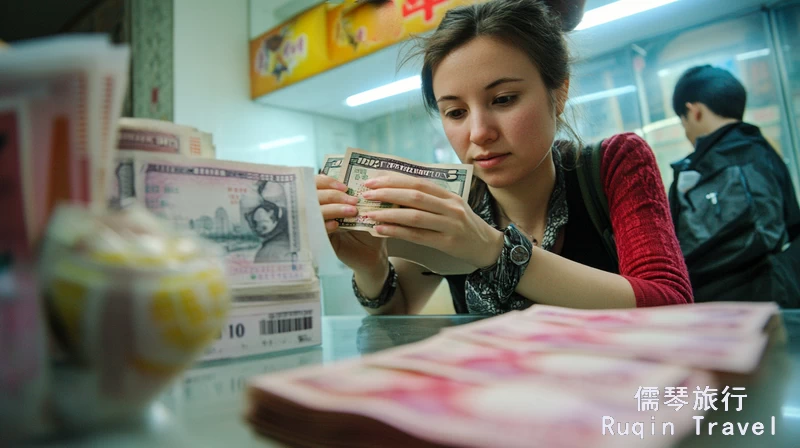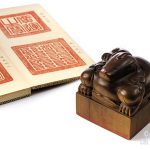Traveling to China offers a rich cultural experience, but understanding the country’s currency and money exchange system is crucial for a smooth trip. As a foreign tourist, you may wonder how to exchange your currency, where to get the best rates, and whether you should rely on cash or card. This guide will provide comprehensive insights into the Chinese Yuan (CNY), the best places to exchange money, and tips for avoiding common pitfalls. Let’s dive into the essentials of currency and money exchange in China.
Understanding Chinese Currency
The official currency of China is the Chinese Yuan (CNY), also known as Renminbi (RMB). The basic unit is the yuan, subdivided into jiao and fen. One yuan equals ten jiao, and one jiao equals ten fen. Banknotes come in denominations of 1, 5, 10, 20, 50, and 100 yuan.
Coins are less common but are available in 1 yuan, 5 jiao, and 1 jiao denominations. It’s essential to familiarize yourself with these denominations to avoid confusion when making purchases. Additionally, be aware that some older banknotes may still be in circulation.
Where to Exchange Money in China
When it comes to exchanging money in China, you have several options. Banks are a reliable choice, offering competitive exchange rates. Major banks like Bank of China, Industrial and Commercial Bank of China (ICBC), and China Construction Bank have branches nationwide.
Additionally, airports and hotels offer currency exchange services, but their rates are often less favorable. For convenience, currency exchange kiosks are available in tourist areas, but they may charge higher fees. Another option is ATMs, which dispense local currency and usually offer fair rates. However, it’s essential to check if your home bank has partnerships with Chinese banks to minimize fees, which is one of the most important part of the currency and money exchange in China.
Exchange Rates in China
Exchange rates in China can vary depending on the location and service provider. Banks typically offer the best rates, but they may charge a service fee. It’s advisable to compare rates at different banks or kiosks to get the most value for your money.
Additionally, keep an eye on the global market as exchange rates can fluctuate daily. Some travelers prefer to monitor rates before their trip and exchange money when rates are favorable. Moreover, using a currency converter app can help you track real-time rates and make informed decisions.
How to Exchange Currency in China
Exchanging currency in China is straightforward, but there are a few steps to follow. First, ensure you have a valid passport, as it’s required for all currency exchanges. Next, visit a bank or authorized exchange service. Fill out a form and present your passport and the currency you wish to exchange.
The teller will calculate the amount you’ll receive in yuan and provide you with a receipt. Always count the money and verify the amount before leaving. For large sums, consider splitting the exchange across multiple transactions to minimize the impact of daily rate fluctuations.
Using Foreign Cards in China
Foreign tourists often wonder about the usability of their credit and debit cards in China. Major international cards like Visa, MasterCard, and American Express are accepted at upscale hotels, restaurants, and tourist shops. However, many local establishments do not accept foreign cards, particularly outside major cities. It’s advisable to carry cash for smaller purchases.
Additionally, notify your bank of your travel plans to avoid any issues with card transactions. Furthermore, inquire about any foreign transaction fees that may apply.
ATMs in China for Foreigners
ATMs are a convenient way to access local currency in China. Most ATMs accept international cards, and many offer English language options. Look for ATMs with the logos of international networks like Visa Plus, MasterCard Cirrus, or UnionPay.
It’s essential to use ATMs located inside bank branches or reputable locations to avoid potential scams. Additionally, be aware of withdrawal limits and fees, which can vary by bank. Some banks may offer partnerships with Chinese banks, allowing fee-free withdrawals. Always keep your receipts and monitor your bank statements for any unauthorized transactions.
Cash or Card in China?
When traveling in China, it’s crucial to balance the use of cash and cards. While credit and debit cards are accepted in major cities, cash remains king in many places. Local markets, street vendors, and smaller establishments often only accept cash.
Therefore, carrying a sufficient amount of yuan is advisable. On the other hand, cards are convenient for larger transactions and emergencies. It’s also worth noting that digital payments like WeChat Pay and Alipay are popular in China. However, these platforms typically require a Chinese bank account, making them less accessible to foreigners.
Buying Chinese Yuan Abroad
Some travelers prefer to buy Chinese yuan before arriving in China. This can be convenient, especially if you arrive late at night or during a public holiday. Many international banks and currency exchange services offer CNY, but the rates may not be as favorable as in China.
It’s advisable to exchange a small amount for immediate expenses and then exchange more once you arrive. Additionally, check if your bank offers the option to order foreign currency online and pick it up at a local branch.
Digital Payments in China
Digital payments have revolutionized transactions in China. Platforms like WeChat Pay and Alipay are ubiquitous, accepted by street vendors and luxury stores alike. However, these services generally require a Chinese bank account, posing a challenge for foreign tourists.
Some recent developments allow foreign cards to be linked to these apps, but the process can be cumbersome. If you’re staying in China for an extended period, consider opening a local bank account to fully utilize these payment methods. For short visits, stick to cash and international cards.
Best Way to Exchange Money in China for Tourists
For most tourists, the best way to exchange money in China is by using a combination of methods. Start by exchanging a small amount at a bank or airport for immediate expenses. Then, use ATMs for additional cash needs, as they often offer better rates and lower fees.
For large purchases, use international credit cards at hotels and major retailers. Additionally, always carry a mix of cash and cards to cover all situations. It’s also wise to keep a separate stash of emergency funds in case of unexpected expenses.
Currency Tips for China Travel
Traveling with local currency in China requires some planning. First, avoid carrying large amounts of cash to minimize the risk of theft. Use a money belt or a secure bag to store your money and valuables.
Secondly, break large bills into smaller denominations, as some vendors may not have change for big notes. Third, always double-check the exchange rate and fees when exchanging money. Finally, be cautious when using ATMs and avoid machines in isolated areas. By following these tips, you can manage your money effectively and enjoy a worry-free trip.
Avoiding Currency Exchange Scams in China
Like any popular tourist destination, China has its share of currency exchange scams. To avoid falling victim, always exchange money at reputable banks or official exchange offices. Be wary of street vendors offering attractive rates, as they may give counterfeit bills.
Additionally, familiarize yourself with the look and feel of Chinese yuan to identify fake currency. If you’re unsure, use a currency app to verify the amount received. Moreover, keep all receipts and count your money before leaving the counter. These precautions can help you avoid scams and protect your funds.
Exchanging Money at Chinese Airports
Exchanging money at Chinese airports is convenient, especially upon arrival. Airport exchange counters are usually open 24/7, making them a reliable option. However, the exchange rates at airports are often less favorable, and the fees can be higher. It’s advisable to exchange a small amount for immediate needs, such as transportation and meals.
For better rates, visit a bank or authorized exchange service once you’re settled. Additionally, some airports have ATMs that accept international cards, providing another option for obtaining local currency.
Navigating the currency and money exchange in China doesn’t have to be daunting. By understanding the basics of the Chinese Yuan, knowing where to exchange money, and taking precautions, you can manage your finances smoothly during your trip.
Whether you prefer using cash or cards, being prepared and informed will help you avoid common pitfalls and ensure a stress-free experience. Enjoy your journey through China, and make the most of the diverse cultural experiences this fascinating country has to offer! Check out China Survival Guide for more information.
More China Survival Guide
Prepare for smooth travels with the China Survival Guide, your go-to resource for practical advice on navigating daily life in China. From essential language tips and transportation know-how to safety guidelines and local etiquette.



